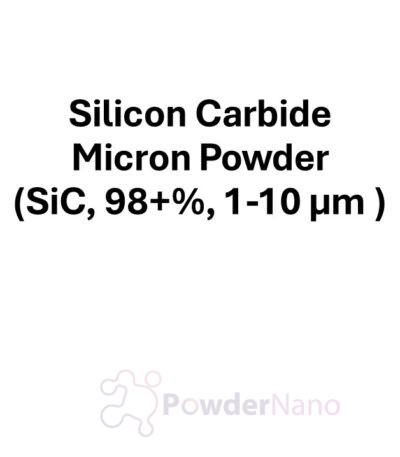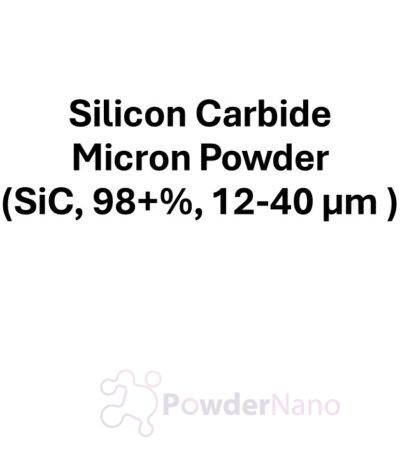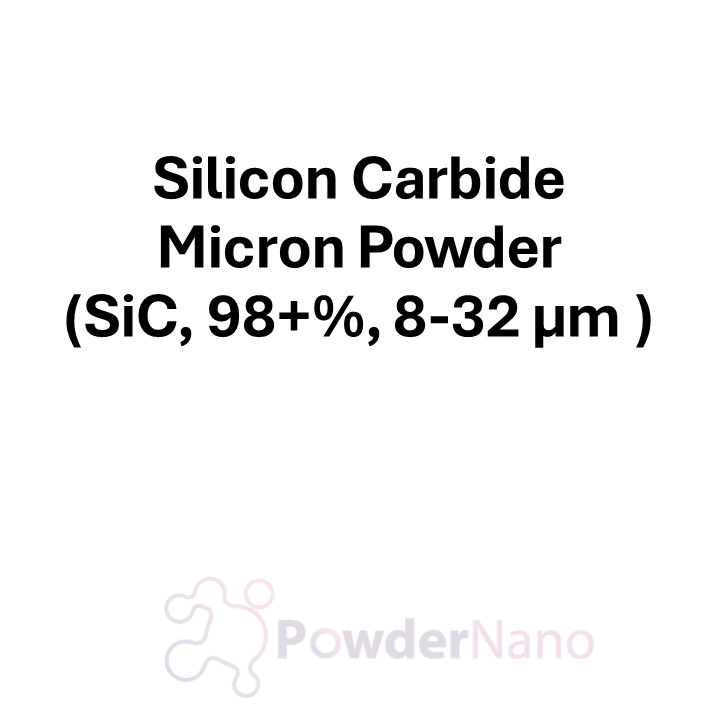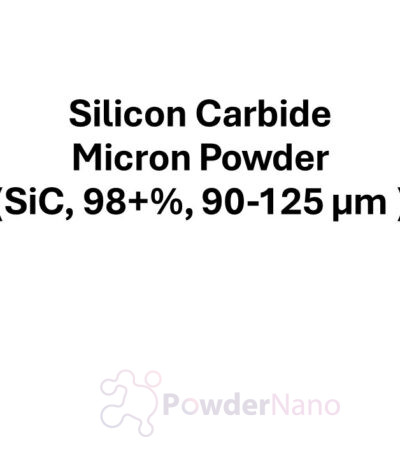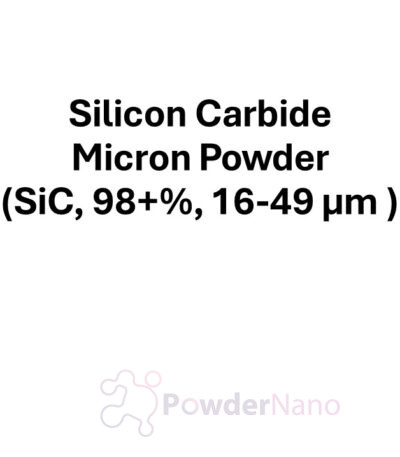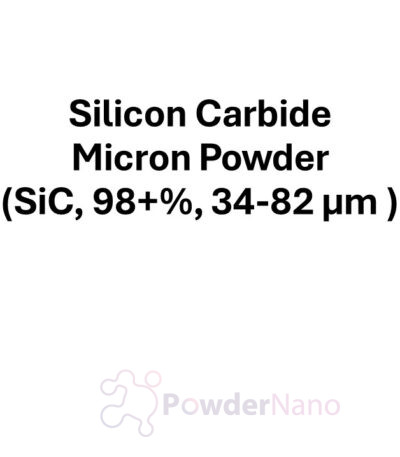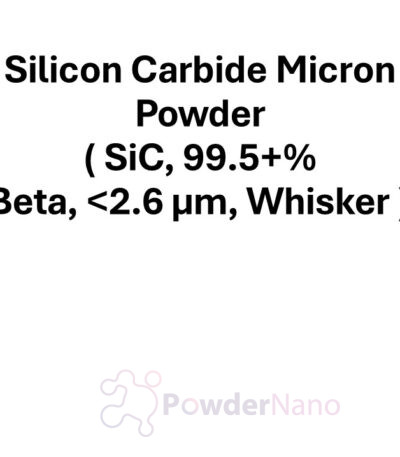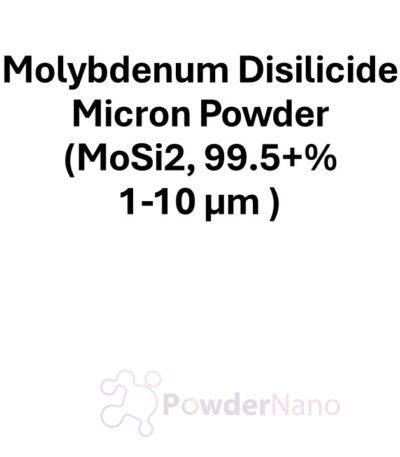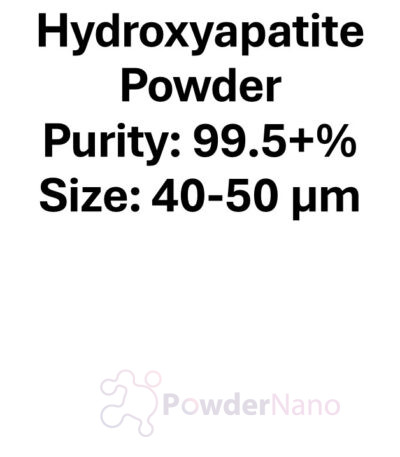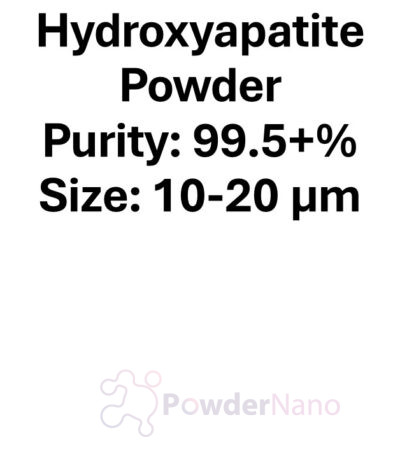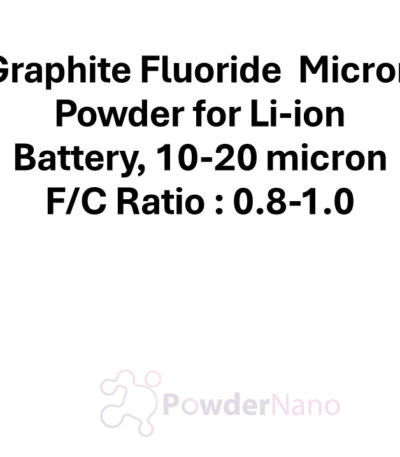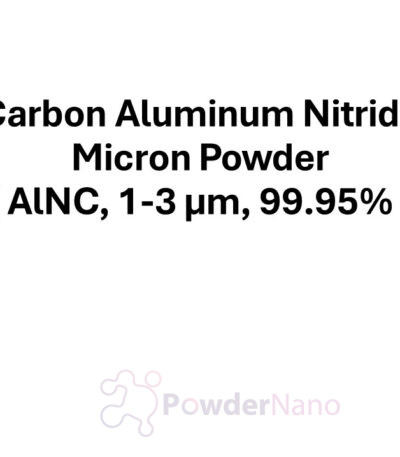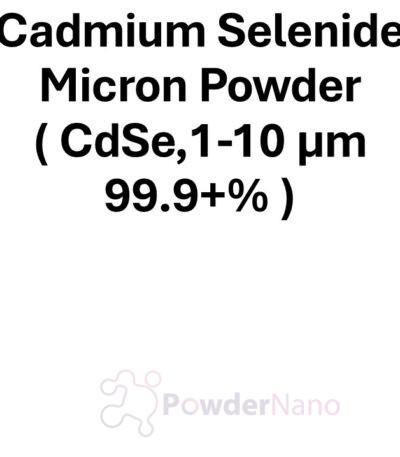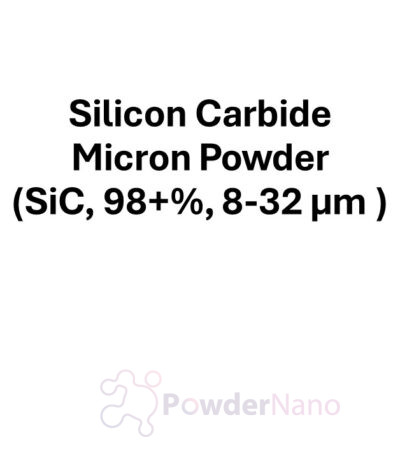Silicon Carbide Micron Powder (SiC, 98+%, 8-32 µm)
Technical Specifications:
- Material: Silicon Carbide (SiC)
- Purity: 98% or higher
- Particle Size: 8-32 µm (microns)
- Shape: Typically irregular, angular, or prismatic depending on the manufacturing process
- Density: Approximately 3.21 g/cm³
- Melting Point: Approximately 2,700°C (4,892°F)
- Boiling Point: Sublimes at approximately 3,200°C (5,792°F)
- Chemical Composition:
- Silicon (Si): ~70%
- Carbon (C): ~30%
Applications:
- Abrasive Materials:
- Silicon Carbide is widely used in abrasive applications due to its extreme hardness. The 8-32 µm micron powder is used in grinding wheels, lapping compounds, polishing pads, and cutting tools for industries like metalworking, automotive, and ceramics.
- SiC powder is ideal for coarse grinding and rough finishing operations, offering superior material removal rates and durability for hard materials such as metals, glass, and ceramics.
- Ceramic Materials:
- Silicon Carbide is used in advanced ceramic materials that require high strength, hardness, and thermal stability. The micron powder is often incorporated into ceramic matrix composites (CMCs), providing increased toughness and thermal resistance.
- These materials are used in aerospace, automotive, and defense applications such as brakes, bearings, cutting tools, and engine components that must withstand high temperatures and mechanical stresses.
- Thermal Management:
- SiC is used in thermal management systems because of its excellent thermal conductivity and high thermal stability. The 8-32 µm micron powder is incorporated into thermal interface materials, heat sinks, and cooling systems for high-power electronics such as LEDs, semiconductors, and power devices.
- The material helps dissipate heat from electronics, ensuring efficient operation and preventing overheating in energy-intensive applications.
- Power Electronics:
- Silicon Carbide is used in power electronics due to its high voltage tolerance, high-temperature performance, and efficiency in high-power applications. The micron powder is used in semiconductor devices like power MOSFETs, diodes, and thyristors for electric vehicles (EVs), solar inverters, and industrial motor drives.
- SiC devices can operate at higher frequencies and temperatures than traditional silicon-based devices, making them ideal for high-power switching and high-efficiency systems.
- Wear-Resistant Coatings:
- Due to its high hardness, Silicon Carbide is used in wear-resistant coatings. The 8-32 µm powder is used to create coatings for components that face abrasion, erosion, or high friction. It is applied to cutting tools, machinery components, valves, pumps, and sliding parts that experience high wear in heavy-duty applications.
- These coatings are used in industries such as mining, metalworking, and automotive to increase the service life of equipment and improve overall efficiency.
- Catalysis:
- Silicon Carbide is used as a catalyst support in various chemical processes, especially in the petrochemical industry. The micron powder is used to produce catalysts for reactions like hydrogenation, methanation, and oxidation, where SiC’s thermal stability and chemical resistance are beneficial.
- SiC is used in high-temperature catalytic reactions, including those in fuel reforming and gas processing.
- Nuclear Applications:
- Silicon Carbide is increasingly used in nuclear reactor technologies due to its resistance to radiation and thermal stability. The micron powder is used in fuel cladding, nuclear fuel components, and control rods that need to withstand high radiation doses and extreme temperatures.
- SiC’s durability and radiation resistance make it ideal for use in nuclear reactors and fusion reactors where material integrity under harsh conditions is critical.
- Electromagnetic Shielding:
- Silicon Carbide is used for electromagnetic shielding applications due to its electrically conductive properties and high resistance to oxidation. The micron powder can be incorporated into composite materials for shielding sensitive electronics from electromagnetic interference (EMI).
- It is particularly useful in military, aerospace, and telecommunications applications where high-frequency interference needs to be suppressed.
- Supercapacitors and Energy Storage:
- Silicon Carbide is used in supercapacitors and energy storage systems due to its high surface area and electrochemical stability. The micron powder is used in the production of electrode materials for high-capacity energy storage devices like supercapacitors and batteries that require rapid charge/discharge cycles.
- The material is also used in high-power storage systems for electric vehicles and renewable energy storage.
- Research and Development:
- SiC micron powder is widely used in research and development for studying advanced materials, nanocomposites, and novel coatings. Researchers use SiC for materials science, nanotechnology, energy systems, and electrochemical applications.
- It is also used to explore the development of new catalysts, thermal management solutions, and power electronics for next-generation technologies in automotive, electronics, energy, and industrial applications.
Silicon Carbide Micron Powder (SiC, 98+%, 8-32 µm) is a high-performance material known for its exceptional hardness, thermal conductivity, oxidation resistance, and electrical properties. It is widely used in abrasive applications, semiconductor devices, thermal management, wear-resistant coatings, catalysis, and high-temperature applications. The micron powder form ensures high surface area, which is ideal for composite reinforcement, electrode materials, and high-performance coatings. Its unique properties make it essential for use in cutting-edge technologies that require efficiency, durability, and reliability under extreme conditions, including aerospace, automotive, electronics, and energy systems.
